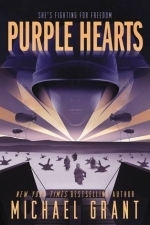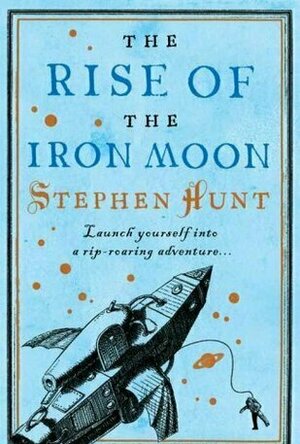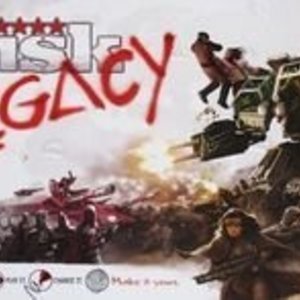
Written & Directed by Black Honey
Album
‘Written & Directed’ is Black Honey’s second album. It follows their outstanding self-titled...

The Godmother's Secret
Book
What if you knew what happened to the Princes in the Tower. Would you tell? Or would you forever...
Biographical Historical Fiction Historical Mystery
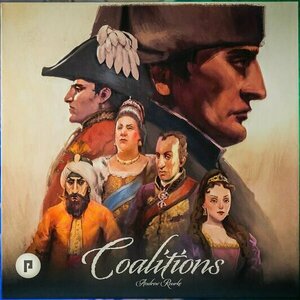
Coalitions
Tabletop Game
Coalitions is based on the series of conflicts known as the Revolutionary and Napoleonic Wars....

WebProtectMe Safe Browser with Parental Control
Productivity and Utilities
App
WebProtectMe Safe Browser(tm) is the best parental controls and security browser, providing your...

Photon Flash Player & Private Browser for iPad
Utilities and Productivity
App
+ "Photon browser is a powerful and versatile Safari alternative that excels in its Flash...
Hazel (1853 KP) rated Purple Hearts in Books
Dec 7, 2018
An epic tale of a reimagined World War II comes to an explosive end in this third and final book <i>Purple Hearts</i>. Michael Grant created an alternative history in which women were allowed to enter the army and fight alongside the men on the front lines in Europe. Having earned accolades, promotions and the right to go home to America at the conclusion of the previous book, Rio, Frangie and Rainy decide to stay for the remains of the war. It is 6th June 1944, and the battle on the sands of Omaha Beach is about to begin – D-Day.
The story rushes into the horrors of the D-Day landings where Rio, now a Sergeant, is leading her platoon through the treacherous battleground, whilst Frangie, the medic, tries to patch up fallen comrades. The author teases the reader with the introduction of new characters who promptly get killed during this fateful day and battles further along the line. There is no sugar coating the horrific experience of soldiers and civilians, regardless of whether the scenes are fictionalized or not.
The difficulty with writing a work of fiction about the final years of World War II is that the majority of readers will already know the facts. Therefore, it was impossible for Grant to compose a drastic alternative history. Despite the inclusion of women soldiers, the main events occur exactly as they did in reality, beginning with D-Day before moving on to Liberated France, the Hürtgen Forest, the Battle of the Bulge, and, eventually, VE Day.
The three main characters have undergone complete transformations since the beginning of book one. No longer are they the innocent girls mocked for the belief they could be as strong as male soldiers. As horror after horror unfolds, readers are left with only the hope that these three survive.
Throughout book one and two, the narrative was interspersed with a commentary from an anonymous female soldier in a bed at the 107th evacuee hospital in Würzburg, Germany. As promised at the beginning of the series, readers finally find out which character this nameless voice belongs to, although it is dragged out until the final pages of the book.
The title, <i>Purple Hearts</i>, refers to the medal earned by soldiers injured in battle. Rio, Frangie and Rainy have each received one, along with a few other characters. Unfortunately, many are killed in the battles, some who have been in the story from the start, making this an extremely shocking book. It goes to show how dangerous war is and the brutality WWII soldiers experienced. It is a surprise that as many survived as they did.
Although at this point the main focus of the story is the war, there is still the underlying theme of equality, both for women and for black people. Frangie provides the insight into the segregation of blacks, being assigned to black-only patrols and having white patients refuse to be treated by her. However, as the war gets more violent, these lines get blurred until it is (mostly) no longer important the colour of a soldier or medic’s skin.
<i>Purple Hearts</i> is a brilliant end to a challenging series. Readers become invested in the characters and are drawn into a story that is so true to form that it is easy to forget that women did not actually take part in the fighting. Evidently well researched, Michael Grant has penned a series that educates whilst it entertains, opening readers’ eyes to the truth about war. This is nothing like a textbook full of facts and figures, it is a moving, personal (forget the fictional bit) account of what WWII was really like. Written with young adults in mind, this is a great series for both teens and older readers.
Phil Leader (619 KP) rated The Rise of the Iron Moon (Jackelian #3) in Books
Nov 25, 2019
Although this is the third book of the series and there are plenty of references to events that must take place in the previous books, and despite the writing being immersive rather than explanatory, I found it easy to get into the story.
The world is very interesting. I have read other novels set in a faux Victorian Steampunk-like world but nothing like this. This is like an alternative history, extremely divergeant from ours but with enough similarities that the combination is quite striking.
For example there was a civil war in the past which parliament won, as in the 'real' British history. However all of the royals have been locked up ever since in the Royal Breeding House - kept as figureheads under constant house arrest and threat of execution at the whim of parliament to appease the masses.
There are also countries ruled by thinking, steam driven machines. Others beneath the waves or living strictly by some political principal.
However the world is under threat. All the countries are being slowly invaded from the North by a very aggressive foe. Under attack the land of Jackals itself calls on its heroes to save the day. Purity Blake, one of the inmates of the Royal Breeding House. Molly Templar, writer of penny dreadful science fiction stories and sometimes defender of the land. Coppertracks, a machine life steam man and scientist. Their companions must overcome impossible odds and put aside the enmity between nations to fight off the attackers. Against all the odds, can they succeed?
The book is a little slow to start up, as the characters are introduced in their diverse environments. But slowly the threads are drawn together and each play their part in the fight. And as they begin to weave into the plot the pace quickens. The story twists and turns, always astonishing in its concept and direction.
The outstanding part of this book is the imagination that has gone into it. Nearly everything is completely different from our world and yet it ties together convincingly into a land both of industry and grime, poverty and privilege but also of very real myth and legend.
The ending is a little bit Deus Ex Machina but really this fits in with the tone quite well and at least keeps the pace up in the final pages. There are enough wonderful and fantastic ideas let loose to wander around in this book for several novels.
Definitely a recommended book. I now need to search out the first book - The Court Of The Air - so I can find out what has happened to the characters before.
John Crowson (2 KP) rated Risk Legacy in Tabletop Games
May 29, 2019
The game is not flawless however. Due to the evolving map and rules, you really need to play with the same group of people each time, meaning if you can't get together too often it could take years to play your 15 games. Due to there being such a wealth of modifiers and variants (many of which occur only under certain conditions and as a "pick one of these two options") a large number of things arnt used, but you won't really notice this. Being a 15 game series there is also the possibility that you may make some modifications early on that cause game breaking OP/UP territories/playable factions, and you will have to live with these for the rest of your games.
All in all, I would recommend this game. But, not without warning. If someone has not played RISK before I would recommend a few games of the base edition before embarking on a 15 game run on RISK Legacy to see if you genuinely l like the game. This is ultimately an evolution of RISK not an alternative.
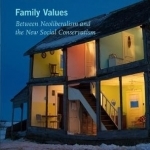
Family Values: Between Neoliberalism and the New Social Conservatism
Book
Why was the discourse of family values so pivotal to the conservative and free-market revolution of...
